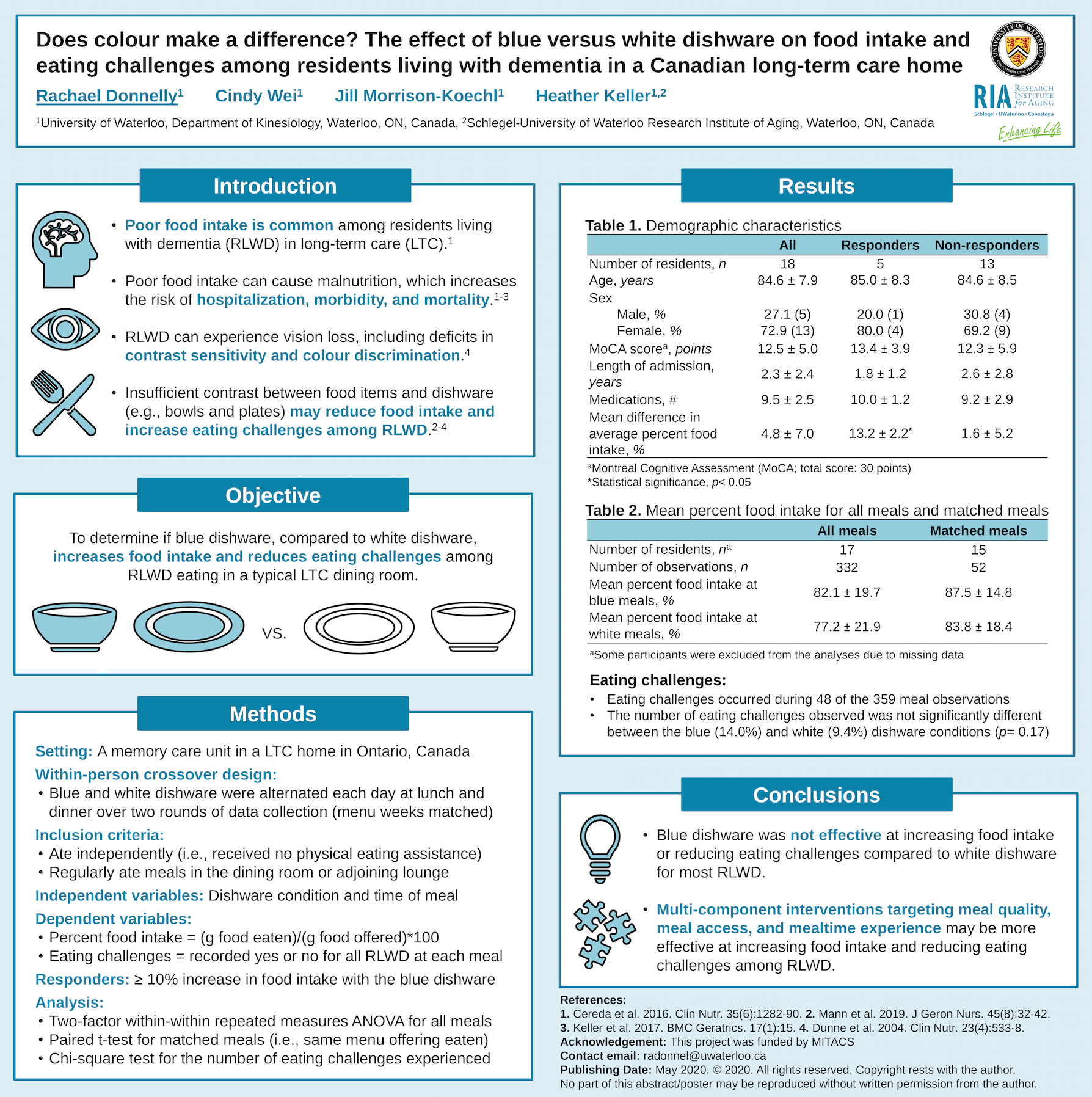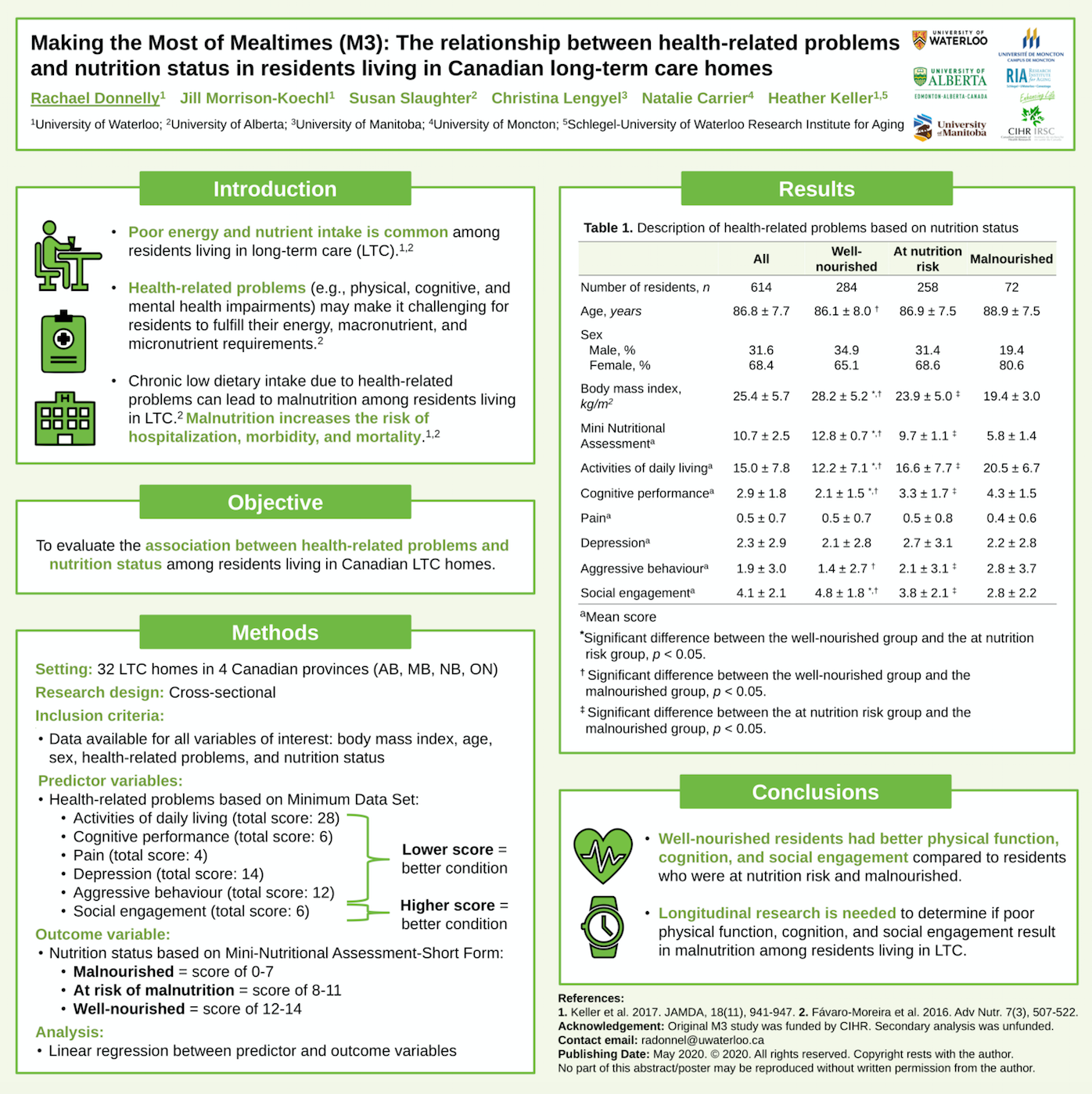Members of the Nutrition & Aging Lab (Rachael Donnelly, Cindy Wei, Vanessa Trinca) represented the Nutrition and Aging Lab at the Canadian Nutrition Society (CNS) 2020 Virtual Poster Expo, an online conference from May 7, 2020 to May 15, 2020. Summaries and posters are displayed below.
Residents living with dementia can experience vision loss, which may reduce food intake and increase eating challenges when dishware and food items are a similar colour. Blue dishware was compared to white dishware among 18 participants; however, it was not effective at improving food intake. Multi-component interventions are warranted.

Health-related problems may make it challenging for older adults to fulfill their energy and nutrient requirements. Relationships between health-related problems and nutrition status were evaluated for 614 residents living in long-term care. Well-nourished residents had better physical function, cognition, and social engagement compared to at nutrition risk and malnourished residents.

We determined the feasibility of ASA24 phone interviews with 46 pre-frail older adults. Completion rates, barriers, and facilitators were collected. Interviews ranged from 30-60 minutes. Seven calls (average) were required to complete assessments. ASA-24 can be completed over the phone. We outlined tips to reduce barriers (e.g., phoning in morning).

Exercise and nutrition can benefit community-dwelling persons with memory changes and care partners. In our on-line survey on challenges and preferences, we found that challenges included meal preparation, weather, time, and limited energy/mobility. Participants reported difficulty keeping up during existing exercise programs. Program preferences were diverse, necessitating flexible offerings.

Descriptive analysis of 983 adult patients from 14 Ontario hospitals identified the importance of food traits as well as ratings of a single meal served in hospital. Patient food intake was also assessed. Understanding patients’ expectations and experiences of hospital food can help to improve meals to optimize food intake.

Qualitative investigation of foodservice staffs’ perceptions and experiences of serving food in Ontario hospitals. Themes include identifying organizational constraints; understanding what patients expect and want from hospital meals; and meeting patients’ nutritional needs. Working within constraints and assessing the food experience were strategies to support quality food.

Secondary analysis investigated the association of cognitive status and macronutrient intake among long-term care residents. Greater cognitive impairment was associated with greater carbohydrate and lower fat intake in bivariate analyses (ANOVAs). Cognitive status only predicted fat intake in multivariate regression analyses, where residents with moderate or severe impairment consumed significantly lower fat.
